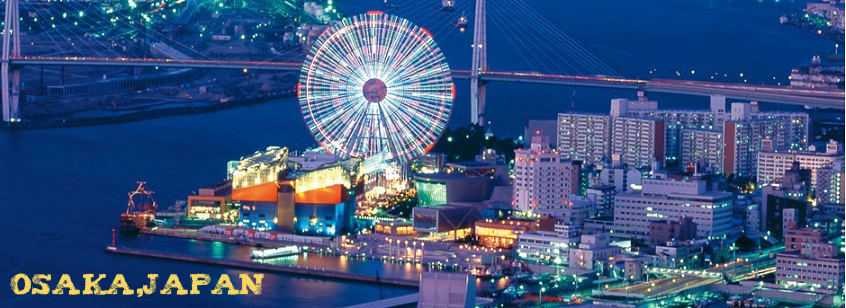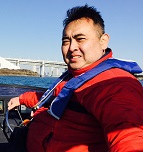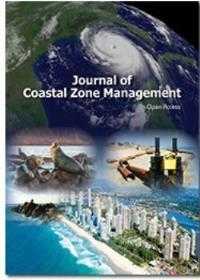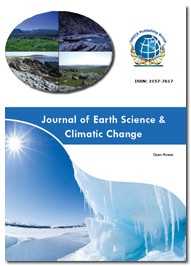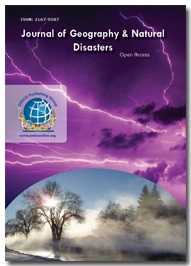Theme: Multidisciplinary Approach in Achieving Equitable Development for Coastal Zones
Coastal Zones 2016
Conference series LLC Conferences invites all the participants from all over the world to attend “International Conference on Coastal Zones” during May 16-18, 2016 in Osaka,Japan which includes prompt keynote presentations, Oral talks, Poster presentations and Exhibitions.
Coastal Zones 2016 is a global platform to discuss and learn about Coastal, Marine and Maritime Engineering,Coastal Zone Management, Coastal Recreation,Coastal Resource Management, Coastal Ecosystem, Economic Development, Coastal Structures, Coastal Engineering Companies, Coastal Processes, Shelf and Estuarine processes, Disaster Mitigation, Tsunami, Storm surge, Climatic Changes, Strategic Planning and Management, Growth and Opportunities, Policy and Legislation,,Coastal Recycling, Coastal Ecoclogy, Coastal Biodiversity and future aspects of Coastal Zones.
Track1: Coastal Management
Any activity taking place in the coastal zone, which has a specific purpose. It includes
- Management for nature conservation,
- Management of recreational activity,
- Habitat and species restoration,
- Coastal defence (protection from coastal erosion and flooding) amongst a wide range of other human uses.
As a result of present population growth and development, coastal areas worldwide are under in-creasing stress. Coastal areas are key focal points for lifestyle and economy. Coastal management will be aimed primarily at local government, which is responsible for managing large areas of public coastal land and beaches, and preserving the qualities and amenity that make many of these areas so precious. State Government, Traditional Owners, national and state marine park managers, port authorities, and operators who manage specialist areas of the coast and tidal water, will also find the policies and supporting information useful in guiding management decisions about activities and resources in the coastal zones.
Related Coastal Zones Conferences | Coastal Resource Management Conferences :
5th Earth Science and Climate Change Conference July 25-27, 2016, Thailand ;5th Biodiversity Conference March 10-12, 2016, Spain ;Pollution Control and Sustainable Environment Conference April 25-26, 2016,Dubai; Sustainable Civil Engineering Conference June 23-25, 2016, South Africa ; 2nd World Congress and Expo on Recycling July 25-27, 2016,Germany; International Coastal Symposium 2016, Australia;14th International Conference on Coastal and Ocean Engineering, UK;18th International Conference on Physical Coastal Processes, Management and Engineering, Italy; International Conference on Geographic Information Systems, USA; FIG Working Week 2016: Recovery from disaster, New Zealand;
Track2: Coastal Living
Coastal life is comfortable, relaxed and unfussy, and interiors in this style reflect that mood. They're loosely arranged and casually outfitted—no finicky fabrics or fine furnishings. Textiles and surface materials are simple, natural, and durable; clear blues, sea greens, creamy whites, and beiges call to mind the hues of sand and water. Nautical and beach accents, such as shells, coral, and sea creatures, lighten up the look in an entirely appropriate way. Coastal living means so much more than just a waterfront location – what’s living near the beach, you take advantage of all the great things a beach town has to offer . So many tourism companies providing with the facilities, that you feel the Bayside and Seaside communities having their own specialty bait and tackle, fishing in the bay or ocean. or just plain relaxing.
Related Coastal Zones Conferences | Coastal Zone Management Conferences :
5th Earth Science and Climate Change Conference July 25-27, 2016, Thailand ;5th Biodiversity Conference March 10-12, 2016, Spain ;Pollution Control and Sustainable Environment Conference April 25-26, 2016,Dubai; Sustainable Civil Engineering Conference June 23-25, 2016, South Africa ; 2nd World Congress and Expo on Recycling July 25-27, 2016,Germany; International Coastal Symposium 2016, Australia;14th International Conference on Coastal and Ocean Engineering, UK;18th International Conference on Physical Coastal Processes, Management and Engineering, Italy; International Conference on Geographic Information Systems, USA; FIG Working Week 2016: Recovery from disaster, New Zealand;
Track3: Coastal Recreation
While there is general recognition that coastal tourism and recreation are important in the coastal zone, we believe that their impact is systematically undervalued both economically and as the most important driver of coastal development. Recreation in terms of developing Tourism and Infrastructure and aquaculture which improves the Nation’s Economy by planning and beach design is of prime importance. Petroleum Industry is majorly engaged with coastal zones. Coral reef resources are also another focused sector in outcome of natural resources. While engaging in the development of these areas, the risk reduction and land use planning have to be considered in terms of natural life forms and investigation of coastal environmental impact simultaneously predicting Environmental variations. sustainable development of coastal tourism depends on a number of factors, including: Good coastal management practices, especially related to location of infrastructure and provision of public access; Clean air and water, and healthy ecosystems; Maintenance of a safe and secure recreational environment, specifically relating to management of hazards, and provision of adequate levels of safety for boaters, swimmers and other recreational users; Beach restoration, including beach nourishment and other efforts that maintain and enhance the recreational and amenity values of beaches;
Related Coastal Zones Conferences | Coastal Zone Management Conferences :
5th Earth Science and Climate Change Conference July 25-27, 2016, Thailand ;5th Biodiversity Conference March 10-12, 2016, Spain ;Pollution Control and Sustainable Environment Conference April 25-26, 2016,Dubai; Sustainable Civil Engineering Conference June 23-25, 2016, South Africa ; 2nd World Congress and Expo on Recycling July 25-27, 2016,Germany; International Coastal Symposium 2016, Australia;14th International Conference on Coastal and Ocean Engineering, UK; International Conference on Geological and Environmental Sciences, Canada; International Conference on Estuaries and Coasts, Japan; 1st Baltic Earth Conference: Multiple drivers for Earth system changes in the Baltic Sea region, Spain;
Track:4 Coastal Engineering
The understanding of complex port requirements for commercial ports, mining and hydrocarbons industries, allows delivering integrated and cost effective solutions. These solutions integrate the marine, product handling and storage requirements within environmental, coastal and geotechnical settings to deliver long term, cost effective and efficient solutions. To ensure that structures have minimal impact on the coastal environment and are kept in good condition, Planning Design & Construction of Ports & Marinas is essential. Coastal and Maritime Engineering Companies and the activities involves Port Navigation Systems, Dredging, Mining & Monitoring, Deep Water Terminals, Designing and Planning Coastal Infrastructure, Desalination & Water Treatment Technologies. Remote Sensing & GIS and Maritime Meteorology with planning and strategy of the structures. Maritime archaeology deals with the submerged or damaged structures and monuments along the coastal regions.
Related Coastal Zones Conferences | Coastal Ecosystem Conferences :
5th Earth Science and Climate Change Conference July 25-27, 2016, Thailand ;5th Biodiversity Conference March 10-12, 2016, Spain ;Pollution Control and Sustainable Environment Conference April 25-26, 2016,Dubai; Sustainable Civil Engineering Conference June 23-25, 2016, South Africa ; 2nd World Congress and Expo on Recycling July 25-27, 2016,Germany;14th International Conference on Coastal and Ocean Engineering, UK;18th International Conference on Physical Coastal Processes, Management and Engineering, Italy; International Conference on Ocean, Offshore and Arctic Engineering, Japan; International Conference on Geological Sciences and Engineering, UK;International Conference on Earth Sciences and Engineering, Denmark;
Track5: Coastal Structures
Coastal structures are an important component in any coastal protection scheme. They directly control wave and storm surge action or to stabilize a beach which provides protection to the coast, majorly comprises Structural and Soft Engineering Techniques. Worldwide investigations like Designing Artificial Reefs will stabilise the Biodiversity. Sloping dykes in the forms of designing gentle slopes type coastal dykes to minimise environmental damage when constructing and maintaining buildings and other public amenities in coastal areas. Protect infrastructure from flooding due to high water levels, erosion, and impact from waves and currents Protect boat traffic by reducing waves and wave impact. Stabilize navigation channels by reducing sedimentation, inlet migration. Reduce erosion by stabilizing shorelines/beaches. Enhance recreation, beauty. Coastal Structures Functional Areas Coastal armouring.Structures resist waves, scour, overtopping. Beach or soil stabilization structures hold upland sediment, retard alongshore transport. Navigation structures resist waves, currents, sedimentation.
Related Coastal Zones Conferences | Coastal Zone Management Conferences :
5th Earth Science and Climate Change Conference July 25-27, 2016, Thailand ;5th Biodiversity Conference March 10-12, 2016, Spain ;Pollution Control and Sustainable Environment Conference April 25-26, 2016,Dubai; Sustainable Civil Engineering Conference June 23-25, 2016, South Africa ; 2nd World Congress and Expo on Recycling July 25-27, 2016,Germany; International Coastal Symposium 2016, Australia;14th International Conference on Coastal and Ocean Engineering, UK;18th International Conference on Physical Coastal Processes, Management and Engineering, Italy; International Conference on Ocean, Offshore and Arctic Engineering, Japan; International Conference on Estuaries and Coasts, Japan;
Track6: Coastal Processes
Coastal areas include continental shelf, slope and estuaries and their processes. Study on wave and their hydrodynamic modelling helps in sedimentation and navigational process of comprehensive sediment management. It involves Coastal oceanography and lagoons in Investigating seashore deposits, shoreline changes. Conservation in marine eco systems, coastal morphology helps in protecting the marine habitats and future survival. the quantitative approach helps to build a solid understanding of wave and current processes that shape coastlines globally. The resulting processes of erosion, transport and deposition and the features they create. From sandy beaches to coral reefs, the major coastal features are related to contemporary processes and to sea-level changes over the past 25 000 years.
Related Coastal Zones Conferences | Coastal Zone Management Conferences :
5th Earth Science and Climate Change Conference July 25-27, 2016, Thailand ;5th Biodiversity Conference March 10-12, 2016, Spain ;Pollution Control and Sustainable Environment Conference April 25-26, 2016,Dubai; Sustainable Civil Engineering Conference June 23-25, 2016, South Africa ; 2nd World Congress and Expo on Recycling July 25-27, 2016,Germany; International Coastal Symposium 2016, Australia;14th International Conference on Coastal and Ocean Engineering, UK;18th International Conference on Physical Coastal Processes, Management and Engineering, Italy; International Conference on Ocean, Offshore and Arctic Engineering, Japan; International Conference on Estuaries and Coasts, Japan;
Track7: Disaster Mitigation
The sustainability of coastal tourism destinations depends partly on their ability to adapt planning and management practices to the impacts of climate change and also to increase their ability to effectively manage natural disasters. Climate change could affect coastal areas in a variety of ways. Coasts are sensitive to sea level rise, changes in the frequency and intensity of storms, increases in precipitation, and warmer ocean temperatures. Climate change may require new approaches to managing land, water, waste, and ecosystems. Climate change will likely bring heavier rainfall and more precipitation to some coastal areas. Coastal zones and the infrastructure are the areas directly impacted by Tsunamis and the climatic change. There should be a Hazard assessment planning and information on Tsunamis, storm surges like cyclones, Hurricanes and typhoons. Geography and remote sensing plays a key role in analysing the impact and recovery from coastal revetment on tsunami run-up, Ecological restoration and simulation by reproducing storm surges. Increase the operational capacity of local communities in coastal tourism destinations to respond in emergencies caused by natural disasters; support the adaptation efforts of these communities to climate change; and reduce the impacts of natural disasters to local communities in coastal tourism destinations.
Related Coastal Zones Conferences | Coastal Resource Management Conferences :
5th Earth Science and Climate Change Conference July 25-27, 2016, Thailand ;5th Biodiversity Conference March 10-12, 2016, Spain ;Pollution Control and Sustainable Environment Conference April 25-26, 2016,Dubai; Sustainable Civil Engineering Conference June 23-25, 2016, South Africa ; 2nd World Congress and Expo on Recycling July 25-27, 2016,Germany; International Conference on Geographic Information Systems, USA; FIG Working Week 2016: Recovery from disaster, New Zealand;International Conference on Seismic Design of Earthquake Resilient Cities, Turkey;International Conference on Ocean, Offshore and Arctic Engineering, Japan; International Conference on Earthquake Engineering and Seismology, USA; International Conference on Earth Sciences and Engineering, Denmark;
Track9: Strategic Planning
Planning and management for coastal resource management involves with defences, socio-environmental issues, along neighbouring coastal nations. There should be controlled and strict strategy in sustainable use of resources, mangrove forest management,Coastal Ecology, Identification of Of Ecologically Critical Areas, Energy recovery divisions for better future habitat in coastal cities. Cost Effective Management To Reduce Hazardous Substances, pollution have to be under controlled monitoring in improving Coastal Water Quality.
Related Coastal Zones Conferences | Coastal Zone Management Conferences :
5th Earth Science and Climate Change Conference July 25-27, 2016, Thailand ;5th Biodiversity Conference March 10-12, 2016, Spain ;Pollution Control and Sustainable Environment Conference April 25-26, 2016,Dubai; Sustainable Civil Engineering Conference June 23-25, 2016, South Africa ; 2nd World Congress and Expo on Recycling July 25-27, 2016,Germany; International Coastal Symposium 2016, Australia;14th International Conference on Coastal and Ocean Engineering, UK;18th International Conference on Physical Coastal Processes, Management and Engineering, Italy; International Conference on Geographic Information Systems, USA; FIG Working Week 2016: Recovery from disaster, New Zealand;
Track8: Policy and Legislation
To encourage coastal areas to develop and implement coastal resource management plans, national policy would be established to preserve, protect, develop, and where possible, restore or enhance, the resources of the Country's coastal zone for this and succeeding generations. Collating and analysing for water quality information to propose draft water quality guidelines and objectives at a regional level for freshwater estuarine and coastal waters, and for site specific locations in streams and certain estuaries and coastal segments. To review progress toward implementation of Strategy objectives and to facilitate and drive further implementation of outstanding objectives. The discharge of sewage from certain boats into Coastal waters should be controlled by a directive.
Related Coastal Zones Conferences | Coastal Zone Management Conferences :
5th Earth Science and Climate Change Conference July 25-27, 2016, Thailand ;5th Biodiversity Conference March 10-12, 2016, Spain ;Pollution Control and Sustainable Environment Conference April 25-26, 2016,Dubai; Sustainable Civil Engineering Conference June 23-25, 2016, South Africa ; 2nd World Congress and Expo on Recycling July 25-27, 2016,Germany; 14th International Conference on Coastal and Ocean Engineering, UK;18th International Conference on Physical Coastal Processes, Management and Engineering, Italy; International Conference on Geological and Environmental Sciences, Canada; International Conference on Seismic Design of Earthquake Resilient Cities, Turkey;
Track10: Growth and Opportunities
The most prominent areas to make investment that have vulnerable growth is the Coastal and Marine Industries division. Areas like Resource Exploitation-Fisheries, Oil & gas and Mining, Infrastructure-transportation, ports, harbours, shoreline protection works, Tourism and Recreation, Conservation Reserves and protection of biodiversity are the fields to challenge the world/Nations economy in future endeavours.
Related Coastal Zones Conferences | Coastal Zone Management Conferences :
5th Earth Science and Climate Change Conference July 25-27, 2016, Thailand ;5th Biodiversity Conference March 10-12, 2016, Spain ;Pollution Control and Sustainable Environment Conference April 25-26, 2016,Dubai; Sustainable Civil Engineering Conference June 23-25, 2016, South Africa ; 2nd World Congress and Expo on Recycling July 25-27, 2016,Germany;14th International Conference on Coastal and Ocean Engineering, UK;18th International Conference on Physical Coastal Processes, Management and Engineering, Italy; International Conference on Geological and Environmental Sciences, Canada; International Conference on Seismic Design of Earthquake Resilient Cities, Turkey;http://www.conferenceseries.com/
ConferenceSeries Ltd feels proud to announce “International Conference on Coastal Zones” (Coastal Zones 2016) which is going to be held during May 16-18, 2016 at Osaka, Japan. We welcome and invite you to participate in this prestigious conference. ConferenceSeries Ltd Organizes 1000+ Global Events inclusive of 300+ Conferences, 500+ Workshops and 200+ Symposiums on various topics of Science & Technology across the globe with support from 1000 more scientific societies and Publishes 500+ Open Access journals which contains over 50000 eminent personalities, reputed scientists as editorial board members.Coastal Zone 2016 conference is organised with conference series webpage.
Coastal Zones 2016 welcomes attendees, presenters, and exhibitors from all over the world to Osaka, Japan. We are delighted to invite you all to attend and register for the “International Conference on Coastal Zones” which is going to be held during May 16-18, 2016 in Osaka, Japan with the theme “Multi Disciplinary approach in achieving equitable development for Coastal Zones”.
The scope of Coastal Zones is to promote the advancements in the field of community based management of coastal resources, large-scale infrastructure development (ports, industrial and residential parks, etc.), pollution and erosion control, aquaculture, tourism and recreation, oil spill contingency planning, and navigational risk assessment.etc., at an international level and also to disseminate the excellence in research to the global community. Coastal zones include the entire continental shelf and occupy about 18% of the surface of the globe, supplying about 90% of global fish catch and accounts for some 25% of global primary productivity while at the same time being some of the most endangered regions on the planet. This growth, which has reached its peak in recent decades, exerts pressures on the environmental and cultural resources of coastal areas, and negatively affects the social, economic and cultural patterns.
Why to Attend
Coastalzone 2016 is a prestigious event which explores the technology to showcase mature technologies from lectures, panel discussions, debates by world renowned experts, who will discuss the latest advances and research in Coastal Zone Management and planning
- Access to the latest coastal management developments –up to 80+ peer reviewed paper presentations
- Network with 100+ coastal experts from around the world
- Commercial opportunities - a technical exhibition will be an integral part of conference programme
- Accompanying workshop and technical visit
Why to Attend
Coastalzone 2016 is a prestigious event which explores the technology to showcase mature technologies from lectures, panel discussions, debates by world renowned experts, who will discuss the latest advances and research in Coastal Zone Management and planning
- Access to the latest coastal management developments –up to 80+ peer reviewed paper presentations
- Network with 100+ coastal experts from around the world
- Commercial opportunities - a technical exhibition will be an integral part of conference programme
- Accompanying workshop and technical visit
Why to Attend
Coastalzone 2016 is a prestigious event which explores the technology to showcase mature technologies from lectures, panel discussions, debates by world renowned experts, who will discuss the latest advances and research in Coastal Zone Management and planning
- Access to the latest coastal management developments –up to 80+ peer reviewed paper presentations
- Network with 100+ coastal experts from around the world
- Commercial opportunities - a technical exhibition will be an integral part of conference programme
- Accompanying workshop and technical visit
Why to Attend
Coastalzone 2016 is a prestigious event which explores the technology to showcase mature technologies from lectures, panel discussions, debates by world renowned experts, who will discuss the latest advances and research in Coastal Zone Management and planning
- Access to the latest coastal management developments –up to 80+ peer reviewed paper presentations
- Network with 100+ coastal experts from around the world
- Commercial opportunities - a technical exhibition will be an integral part of conference programme
- Accompanying workshop and technical visit
Why to Attend
Coastalzone 2016 is a prestigious event which explores the technology to showcase mature technologies from lectures, panel discussions, debates by world renowned experts, who will discuss the latest advances and research in Coastal Zone Management and planning
- Access to the latest coastal management developments –up to 80+ peer reviewed paper presentations
- Network with 100+ coastal experts from around the world
- Commercial opportunities - a technical exhibition will be an integral part of conference programme
- Accompanying workshop and technical visit
Target Audience
- President/Vice president
- Chairs/Directors,Deans
- Eminent Scientists/ Research Professors,
- Junior/Senior research fellows, Students.
- Directors of companies, Engineers,Executives
- Members of different Coastal and Marine associations
Scope and Importance
Coastal zone management (CZM) is a part of Integrated Coastal Management (ICM), which is an interdisciplinary and inter sectoral approach to problem definition and solutions in the coastal zone, it includes a range of initiatives that promote environmentally sustainable development of coastal areas, and encompasses a range of activities such as community based management of coastal resources, large-scale infrastructure development (ports, industrial and residential parks, etc.), pollution and erosion control, aquaculture, tourism and recreation, oil spill contingency planning, and navigational risk assessment.CZM is a process of governance that consists of the legal and institutional framework necessary to ensure that development and management plans for coastal zones are integrated with environmental and social goals, and are developed with the participation of those affected. The purpose of ICM is to maximize the benefits provided by the coastal zone and to minimize the conflicts and harmful effects of activities on social, cultural and environmental resources. (World bank, 1996)
Purpose of Coastal Zones maximize the benefits provided by the coastal zone and minimize conflicts and harmful effects of activities upon each other, resources and the environment.Promote linkages between sectoral activities Guide coastal area development in an ecologically sustainable fasion For some, integrated coastal zone management protects habitats, i.e. wetlands, coral reefs and their water quality and also prevents the loss of life, while for others it provides a means of public access to coastal areas (which sometimes causes conflicts with private bodies)
We look forward to an exciting scientific event in the Wonderful city of Osaka, Japan.
Coastal zone management (CZM) is a part of Integrated Coastal Management (ICM), which is an interdisciplinary and inter sectoral approach to problem definition and solutions in the coastal zone, it includes a range of initiatives that promote environmentally sustainable development of coastal areas, and encompasses a range of activities such as community based management of coastal resources, large-scale infrastructure development (ports, industrial and residential parks, etc.), pollution and erosion control, aquaculture, tourism and recreation, oil spill contingency planning, and navigational risk assessment.CZM is a process of governance that consists of the legal and institutional framework necessary to ensure that development and management plans for coastal zones are integrated with environmental and social goals, and are developed with the participation of those affected. The purpose of ICM is to maximize the benefits provided by the coastal zone and to minimize the conflicts and harmful effects of activities on social, cultural and environmental resources. (World bank, 1996)
Purpose of Coastal Zones maximize the benefits provided by the coastal zone and minimize conflicts and harmful effects of activities upon each other, resources and the environment.Promote linkages between sectoral activities Guide coastal area development in an ecologically sustainable fasion For some, integrated coastal zone management protects habitats, i.e. wetlands, coral reefs and their water quality and also prevents the loss of life, while for others it provides a means of public access to coastal areas (which sometimes causes conflicts with private bodies)
Challenges of CZM
- Failure to appreciate the interconnections within coastal systems
- Inadequate legislation and lack of enforcement
- Limited understanding and experience in ICZM
- Limited understanding of coastal and marine processes
- Lack of trained personnel, relevant technologies and equipment
Why Osaka
Osaka is a financial powerhouse, with its skyscrapers and brilliant energy, and borders the international port of Kobe. Kyoto, the old imperial capital of Japan from 1180–1868, is the cultural and historical heart of Japan, and a short train ride away from Osaka and Kobe.
Japan is a stratovolcanic archipelago of 6,852 islands. The four largest islands are Honshu, Hokkaido, Kyushu, and Shikoku, which together comprise about 97% of Japan's land area. Due to its location in the Pacific Ring of Fire, Japan is substantially prone to earthquakes and tsunami, having the highest natural disaster risk in the developed world.
Osaka and other major cities in Japan are the reflections of the immensely Coastal developed areas, which gives intense scope of innovation to researchers around the world. Majorly research institutions and organisations in the field of Coastal Management and Marine studies are surrounded with in the area of Osaka,Japan.
Why to Attend
Coastal Zones 2016 is a prestigious event which explores the technology to showcase mature technologies from lectures, panel discussions, debates by world renowned experts, who will discuss the latest advances and research in Coastal Zone Management and planning
- Access to the latest coastal management developments –up to 80+ peer reviewed paper presentations
- Network with 100+ coastal experts from around the world
- Commercial opportunities - a technical exhibition will be an integral part of conference programme
- Accompanying workshop and technical visit
Target Audience
- President/Vice president
- Chairs/Directors,Deans
- Eminent Scientists/ Research Professors,
- Junior/Senior research fellows, Students.
- Directors of companies, Engineers,Executives
- Members of different Coastal and Marine associations.
Major Coastal Zone studies Associations around the Globe
- World Ocean Circulation Experiment
- Undersea Research Center (NATO)
- MAST (Marine Science and Technology) programme, European Commission
- International Council for the Exploration of the Sea
- Intergovernmental Oceanographic Commission, UNESCO
- European Geophysical Society
- Scientific Committee on Oceanic Research
Major Coastal Zone Research Institutions in Japan
- Japan Agency for Marine-Earth Science and Technology
- Tokyo University of Marine Science and Technology
- Kobe University
- University of the Ryukyus
- The University of Tokyo
Glance at Market of Coastal Zones 2016
The coastal zone makes up only 10% of the ocean environment, but is home to over 90% of all marine species. For example, of the 13,200 known species of marine fish, almost 80% are coastal. According to the UN, around 3.6 billion people, or 60% of the world’s population, live within 60km of the coast. And 80% of all tourism takes place in coastal areas. Most of the goods we extract from the ocean - from fish to oil and gas - come from coastal regions. Coastal ecosystems also provide a range of services that benefit people around the world.
Coastal zones include the entire continental shelf and occupy about 18% of the surface of the globe, supplying about 90% of global fish catch and accounts for some 25% of global primary productivity while at the same time being some of the most endangered regions on the planet. This growth, which has reached its peak in recent decades, exerts pressures on the environmental and cultural resources of coastal areas, and negatively affects the social, economic and cultural patterns.
Which is indeed an important industry as the world fleet carries over 90% of the world trade by tonnage and shipbuilding is a business worth over U.S. $32 billion per annum. Offshore oil & gas is the world's biggest marine industry where production alone can have a value of more than $300 billion per annum.Oceans Natural Resources are worth $21 trillion a year, creating jobs for 350 million people and industry worth $1.2 trillion.
As for Japan concerns, its economic growth having the key sectors like Fishing ,Coastal Tourism and mining&oiland gas. Japan ranked fourth in the world in 1996 in tonnage of fish caught. Japan was the fifth most visited country in Asia and the Pacific, with over 8.3 million tourists. In 2013, Japan received a record 11.25 million visitors, which was higher than the government's projected goal of 10 million visitors.Japan's mining production has been minimal, and Japan has very little mining depositsHowever, massive deposits of rare earths have been found off the coast of Japan.In the 2011 fiscal year, the domestic yield of crude oil was 820 thousand kiloliters, which was 0.4% of Japan's total crude processing volume.
Exported aquaculture species in Japan, the main product is pearls. The export value of pearls in 2005 was US$ 243 million (Japan Tariff Association, 2006). Major export markets are the United States, Germany, Switzerland, Hong Kong, Italy, and Korea. Ornamental fish were also exported for US$ 9.3 million to the UK, Hong Kong, Germany, the United States and the Netherlands. Small quantities of fillets of yellowtail, live red seabream, and yesso scallops were also exported.
For more details please click here
To share your views and research, please click here to register for the Conference.
To Collaborate Scientific Professionals around the World
| Conference Date | May 16-18, 2016 | |||
| Sponsors & Exhibitors |
|
|||
| Speaker Opportunity Closed | Day 1 | Day 2 | Day 3 | Day 4 |
| Poster Opportunity Closed | Click Here to View | |||
Useful Links
Special Issues
All accepted abstracts will be published in respective Our International Journals.
Abstracts will be provided with Digital Object Identifier by

